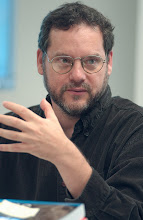Building The EAOP Network
 The Environmental Advocacy and Organizing Program at Antioch University New England is not just a two-year activist training program. It is also an ongoing activist network of faculty, graduates, and current students who support each other for the long haul.
The Environmental Advocacy and Organizing Program at Antioch University New England is not just a two-year activist training program. It is also an ongoing activist network of faculty, graduates, and current students who support each other for the long haul.This fall, as we welcome our fifth cohort of activists-in-training to the program, the EAOP has also launched an alumni blog to help keep this network connected after graduation--and we are also organizing the first of many bi-annual EAOP network weekend gatherings for graduates, faculty, and current students. According to EAOP faculty member Abi Abrash Walton, "We envision this first network gathering as a great opportunity for EAOPers from all five years of the program to get together to catch up, network, and be inspired by each other."
As an additional treat, Eli Pariser, the Executive Director of MoveOn.org, will be joining us as our guest speaker during the weekend. Eli was at the top of our list when we brainstormed possible keynotes, and we're super psyched that he will be plugging in with us for what promises to be an intense talk and discussion on organizing the "netroots" into a powerful force for positive social change.
Here is a little background on Eli. He joined MoveOn in November of 2001, after his independent, web-based petition for a multi-lateral response to the events of 9/11 received overwhelming support from the online community. He directed MoveOn's campaign against the Iraq War, tripling MoveOn's member base in the process.
Pariser was one of the co-creators of the Bush in 30 Seconds ad contest and, as Executive Director of MoveOn.org Political Action, raised over $30 million from over 350,000 small donors in 2004 to run ads, develop a powerful field program, and support various progressive positions and candidates.
Pariser graduated summa cum laude in 2000 with a B.A. in Liberal Arts (concentration in Political Science) from Simon's Rock College in Great Barrington, Massachusetts. He is originally from Camden, Maine and now lives in Portland, Maine. He appeared on The Colbert Report for an interview on August 10, 2006.
Abi and I both believe that by building an ongoing network of EAOP-trained activists, advocates, and organizers, we can make a stronger contribution to social change than having a program that just lets its graduates scatter with no organized way to keep in touch with each other, with current students, or with the EAOP faculty. We believe that we are all in this work together and we want to support each other long after students complete their master's program in Environmental Advocacy and Organizing. We are not just building an activist training program, we are building a small, but growing activist network that offers inspiration, support, assistance, and opportunities for continuing education for action.


